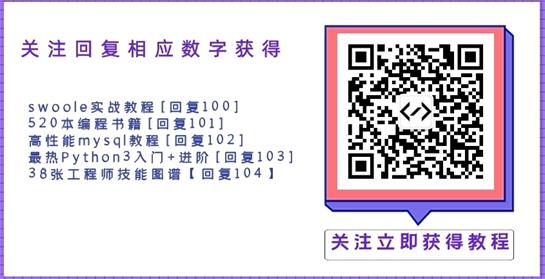众所周知application有4种启动方式:
- 点击app启动
- 快捷方式
- 通知跳转
- 输入命令(adb命令等)
今天给大家简单介绍一下快捷方式启动的用法~
快捷方式介绍
谷歌官方在Android 7.1(API 25)新增了桌面长按弹出菜单,并且在8.0(API 26)以后可以固定快捷方式至桌面上。围绕桌面快捷方式的需求也比较多,例如微信将联系人、小程序都可以添加至桌面;简书将“写文章”添加至桌面;高德将“坐标信息”添加到桌面。
快捷方式情景再现
将某个应用添加到桌面

长按应用打开某一个功能

快捷方式使用
将某个应用添加到桌面
先看代码,后面我会将这些代码写成工具类供大家使用:
/**
* @param context 当前content
* @param targetClass 快捷图标打开的界面
* @param backClass 打开后按返回键返回的界面
* @param shortCutId shortCut 唯一id
* @param shortCutIcon 桌面上显示的图标
*/
public void AddShortCut(Context context, Class targetClass, Class backClass, int shortCutId, int shortCutIcon) {
if (Build.VERSION.SDK_INT >= Build.VERSION_CODES.O) {
ShortcutManager shortcutManager = (ShortcutManager) context.getSystemService(Context.SHORTCUT_SERVICE);
if (shortcutManager != null && shortcutManager.isRequestPinShortcutSupported()) {
Intent shortcutInfoIntent = new Intent(context, targetClass);
shortcutInfoIntent.setAction(Intent.ACTION_VIEW);
ShortcutInfo info = new ShortcutInfo.Builder(context, "id" + shortCutId)
.setIcon(Icon.createWithResource(context, shortCutIcon)).
setShortLabel(titles[shortCutId]).setIntent(shortcutInfoIntent).build();
PendingIntent shortcutCallbackIntent = PendingIntent.getBroadcast(context, 0, new Intent(context, backClass), PendingIntent.FLAG_UPDATE_CURRENT);
shortcutManager.requestPinShortcut(info, shortcutCallbackIntent.getIntentSender());
}
} else {
Toast.makeText(context, "设备不支持在桌面创建快捷图标!", Toast.LENGTH_LONG).show();
}
}
测试:
shortUtil.AddShortCut(
this,
MainActivity::class.java,
MainActivity::class.java,
2,
R.drawable.ic_launcher_background
)
效果图(1.1):

修改快捷方式:
/**
* @param context 上下文
* @param cls 要跳转的页面
* @param shortCutId shortCut 唯一id
* @param shortCutIcon 桌面上显示的图标
* @param shortCutLabel 桌面图标下方显示的文字
*/
public void updItem(Context context, Class<?> cls, int shortCutId, int shortCutIcon, String shortCutLabel) {
Intent intent = new Intent(context, cls);
intent.setAction(Intent.ACTION_VIEW);
intent.putExtra("msg", titles[shortCutId]);
ShortcutInfo info = null;
if (Build.VERSION.SDK_INT >= Build.VERSION_CODES.N_MR1) {
info = new ShortcutInfo.Builder(context, "id" + shortCutId)
.setIcon(Icon.createWithResource(context, shortCutIcon))
.setShortLabel(shortCutLabel)
.setIntent(intent)
.build();
sm.updateShortcuts(Arrays.asList(info));
}
}
测试:
shortUtil.updItem(
this,
ModifyActivity::class.java,
2,
R.drawable.ic_launcher_background,
"修改快捷方式成功"
)
效果图(1.2):

禁用快捷方式:
/**
* 禁止使用快捷方式
*
* @param index 禁止使用下标
*/
public void remove(int index) {
if (Build.VERSION.SDK_INT >= Build.VERSION_CODES.N_MR1) {
sm.removeAllDynamicShortcuts();
List<String> list = new ArrayList<String>();
list.add("id" + index);
sm.disableShortcuts(list);
}
}
测试:
shortUtil.remove(2)
效果图(1.3):

长按应用打开某一个功能:
这里以Fragment举例:
先来看看最终的效果:

主要代码:
private static int[] icons = {R.drawable.ic_launcher_background, R.drawable.ic_launcher_foreground, R.drawable.ic_launcher_background, R.drawable.ic_launcher_foreground,};
private static String[] titles = {"首页", "我的", "详情", "设置"};
/**
* 设置默认快捷方式
*
* @param context 上下文
* @param ast 跳转页面
*/
public void setShortCuts(Context context, Class ast) {
if (Build.VERSION.SDK_INT >= Build.VERSION_CODES.N_MR1) {
ArrayList<ShortcutInfo> list = new ArrayList<>();
for (int i = 0; i < titles.length; i++) {
Intent intent = new Intent(context, ast);
intent.setAction(Intent.ACTION_VIEW);
intent.putExtra("msg", titles[i]);
intent.putExtra(SHORTCUT_TAB_INDEX, i);
intent.addCategory("android.intent.category.LAUNCHER");
ShortcutInfo build = new ShortcutInfo.Builder(context, "id" + i)
.setShortLabel(titles[i])
.setLongLabel(titles[i])
.setIcon(Icon.createWithResource(context, icons[i]))
.setIntent(intent)
.build();
list.add(build);
}
sm.setDynamicShortcuts(list);
} else {
Toast.makeText(context, "该设备不支持快捷方式", Toast.LENGTH_SHORT).show();
}
}
在Application中注册一下:

记得在清单文件声明哦
// 保存按钮
val radiolist = listOf(radioButton1, radioButton2, radioButton3, radioButton4)
//快捷方式打开
initShort {
val arg0 = intent?.extras?.getInt(ShortCutUtil.SHORTCUT_TAB_INDEX)
if (arg0 != null) {
val let = arg0.let {
radioGroup.getChildAt(it)
}
val bun = Bundle()
bun["title"] = (let as RadioButton).text as String
//传值
blankFragment.setArguments(bun)
radiolist[arg0].isChecked = true
}
}
private fun initShort(arg0: () -> Unit) {
arg0.invoke()
}
private operator fun Bundle.set(key: String, value: String) {
this.putString(key, value)
}
注意:这段代码使用kotlin写的,因为刚创建项目的时候只能创建kotlin,我就懒的改了
Fragment代码很简单,通过Arguments获取到值赋值到TextView上即可这里就不贴代码了
以上就是浅谈Android添加快捷方式ShortCut的详细内容,更多关于Android快捷方式的资料请关注自学编程网其它相关文章!

- 本文固定链接: https://zxbcw.cn/post/209262/
- 转载请注明:必须在正文中标注并保留原文链接
- QQ群: PHP高手阵营官方总群(344148542)
- QQ群: Yii2.0开发(304864863)
